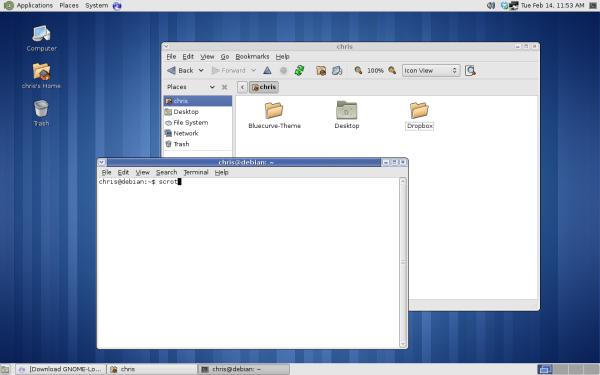"Year of Linux desktop" still misses crucial issue
No surprise, here. Sadly.
The “Year of the Linux Desktop” has been waiting to happen since (at least) 1998.
Today, there still are serious efforts and proposals to reclaim the “Year of the Linux desktop” as a real plan rather than a joke..

Vintage Linux Desktop interface
</em></u>
“Why didn’t Linux take over the desktop as it has done with the servers?" A major reason is that “the Linux desktop suffered from many self-inflicted wounds”. Most of those wounds are correctly described in that interview, except one, which in my opinion is the most important for many desktop users.
The Linux desktop, we read in the interview, must be more welcoming to third-party independent software vendors (ISVs) [in order to] “give normal users stuff like Microsoft Word, Photoshop, games…”.
OK. How can Linux do this, in practice?
First, there needs to be one central portal, with all the information and other resources that developers need.
Second, more stable application programming interfaces (API)s. And possibly less of them: “Why are there two APIs for basic file management?”
Next, “Packaging is still a pain in the rump”. For what is worth, I agree. Snap, Flatpack, pip, CPAN for Perl modules… a time drain, indeed.
Also, “Why two major Linux desktop foundations? Why not “at least work together, under a joint umbrella foundation?" For the record, I’ve heard practically the same question, over the years, about the Free Software Foundation and the Electronic Frontier Foundation.
“Microsoft to Linux!”
One suggestion, that still doesn’t touch the real problem, would be that maybe the time has come to “encourage Microsoft to bring all of Microsoft Office to Linux? Or help Adobe to bring Photoshop to Linux? After all… you can now run Office 365 on Linux”.
True. But to me, really, it seems that:
For Linux, 2019 is the new 2002. Or 2001
No standardization, or common vision,for interface and APIs? You are welcome to compare, only for fun and historical perspective, that part of that interview with the first half of what I wrote about toolkits, interfaces and libraries for Linux desktops… SEVENTEEN years ago.

Red Hat Bluecurve interface, 2002
</em></u>
That, however, is not the “missing wound” I am talking about.
The missing wound
What really prompted me to write this post is the word what is missing from that interview, and that word is formats: especially FILE formats.
The third paragraph of my 2002 piece about the Bluecurve interface is titled “The Migration Mistake”. In it, I suggested to “please let’s end this desktop environment tantrum”. Because if Windows users were not migrating to Linux in 2002, it was not for lack of familiar interfaces, or Linux versions of Microsoft programs. It was because they lacked “whatever, even text-based, as long as it reads perfectly ten years worth of customer orders”.
Worry about formats, not interfaces!
This was the conclusion of my 2002 piece, and that was not even the first time. I first said EIGHTEEN years ago that much OpenOffice (and now LibreOffice) advocacy was hopeless.
In 2019, I can only expand and repeat those suggestions: worry about really open file formats and communication protocols, not interfaces, or “porting apps to Linux”. Worries at that level may be just one more symptom of (quoting the same people) missing the bigger picture by “limiting the Free Software and Open Source movement to [certain] questions only”.
Who writes this, why, and how to help
I am Marco Fioretti, tech writer and aspiring polymath doing human-digital research and popularization.
I do it because YOUR civil rights and the quality of YOUR life depend every year more on how software is used AROUND you.
To this end, I have already shared more than a million words on this blog, without any paywall or user tracking, and am sharing the next million through a newsletter, also without any paywall.
The more direct support I get, the more I can continue to inform for free parents, teachers, decision makers, and everybody else who should know more stuff like this. You can support me with paid subscriptions to my newsletter, donations via PayPal (mfioretti@nexaima.net) or LiberaPay, or in any of the other ways listed here.THANKS for your support!